International
‘We don’t eat lithium’: S. America longs for benefits of metal boon
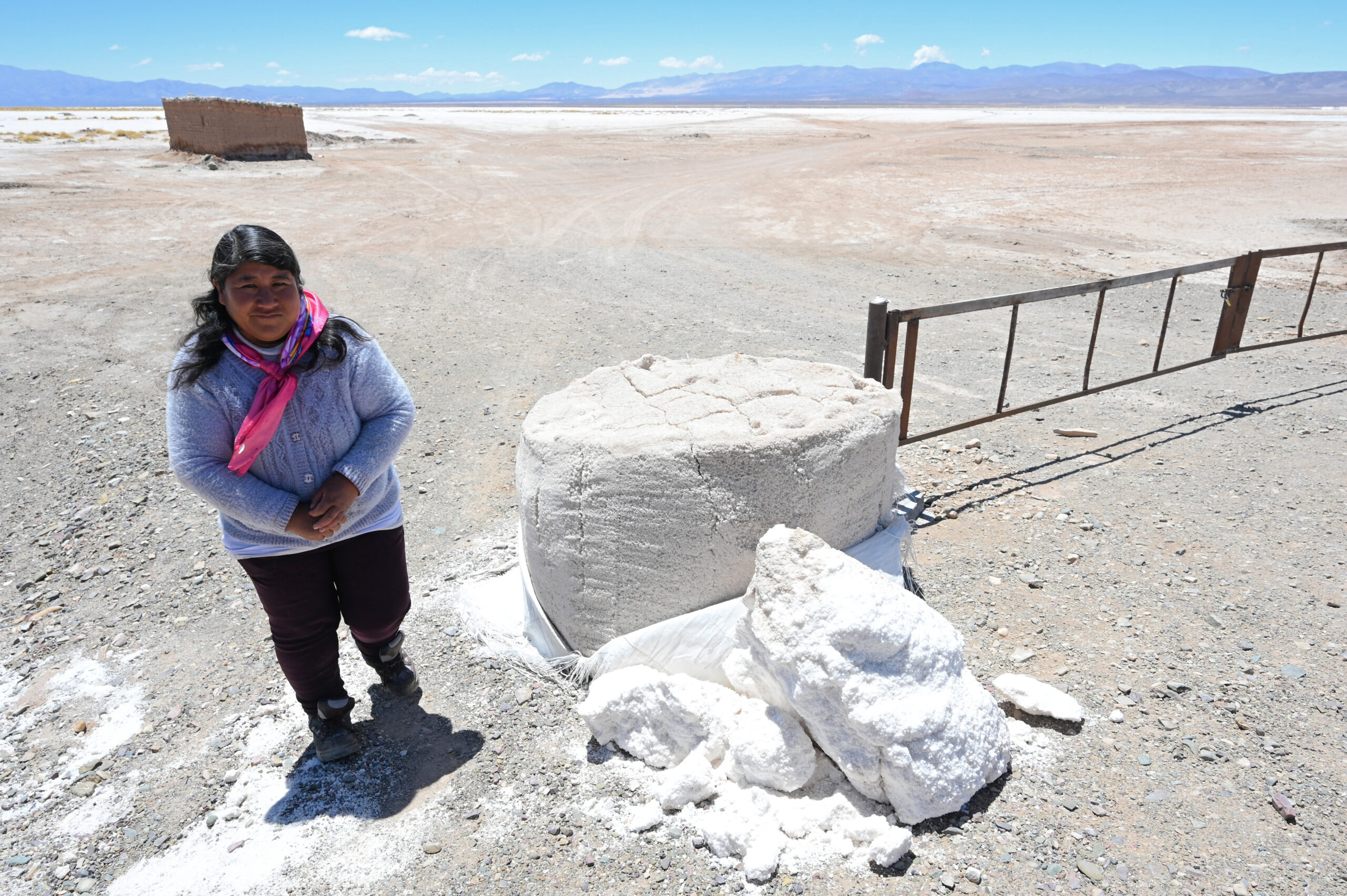
| By AFP | Martín Silva |
The turquoise glimmer of open-air pools contrasts sharply with the dazzling white of salt flats in Latin America’s “lithium triangle,” where hope resides for a better life fueled by a metal bonanza.
A key component of batteries used in electric cars, demand has exploded for lithium — the “white gold” found in Chile, Argentina and Bolivia in quantities larger than anywhere else in the world.
And as the world seeks to move away from fossil fuels, lithium production — and prices — have skyrocketed, as have the expectations of communities near lithium plants, many of whom live in poverty.
But there are growing concerns about the impact on groundwater sources in regions already prone to extended droughts, with recent evidence of tree and flamingo die-offs.
And there are scant signs to date of benefits trickling down.
“We don’t eat lithium, nor batteries. We do drink water,” said Veronica Chavez, 48, president of the Santuario de Tres Pozos Indigenous community near the town of Salinas Grandes in Argentina’s lithium heartland.
A poster that meets visitors to Salinas Grandes reads: “No to lithium, yes to water and life.”
Lithium extraction requires millions of liters of water per plant per day.
Unlike in Australia — the world’s top lithium producer that extracts the metal from rock — in South America it is derived from salars, or salt flats, where saltwater containing the metal is brought from underground briny lakes to the surface to evaporate.
Soaring prices
About 56 percent of the world’s 89 million tons of identified lithium resources are found in the South American triangle, according to the US Geological Survey (USGS).
The world average price rose from $5,700 per ton in November 2020 to $60,500 in September this year.
Chile hosts the westernmost corner of the lithium triangle in its Atacama desert, which contributed 26 percent of global production in 2021, according to the USGS.
The country started lithium extraction in 1984 and has been a leader in the field partly because of low rainfall levels and high solar radiation that speeds up the evaporation process.
But Chilean law has made it difficult for companies to gain concessions from the government since the dictatorship of Augusto Pinochet declared the metal a “strategic resource” for its potential use in nuclear bombs.
Only two companies have permits to exploit the metal — Chile’s SQM and American Albemarle, which pay up to 40 percent of their sales in tax.
In the first quarter of this year, lithium’s contribution to the public coffers surpassed those of Chile’s mainstay metal, copper, for the first time, according to government records.
Yet, the environmental costs are starting to stack up, and locals fear there is worse to come.
This year, a study in the journal Proceedings of the Royal Society B found a link between lithium mining and a decline in two flamingo species in the Salar de Atacama.
“The development of technologies to slow climate change has been identified as a global imperative. Nonetheless, such ‘green’ technologies can potentially have negative impacts on biodiversity,” said the study.
In 2013, an inspection at the SQM site — which reported using nearly 400,000 liters of water per hour in 2022 — found that a third of carob trees in the area had died.
A later study pointed to water scarcity as a possible cause.
“We want to know, for sure, what has been the real impact of the extraction of groundwater,” said Claudia Perez, 49, a resident of the nearby San Pedro river valley.
She was not against lithium, said Perez, provided there are measures to “minimize the negative impact on people.”
‘Leave us alone’
Across the Andes in Argentina, the salt lakes of Jujuy host the world’s second-largest lithium resources along with the neighboring provinces of Salta and Catamarca.
With few restrictions on extraction and a low tax of only 3.0 percent, Argentina has become the world’s fourth-biggest lithium producer from two mines.
With dozens of new projects in the works with the involvement of US, Chinese, French, South Korean and local companies, Argentina has said it hopes to exceed Chilean production by 2030.
But not everyone is sold on the idea.
“It is not, as they say, that they (lithium companies) are going to save the planet… Rather it is us who have to give our lives to save the planet,” said Chavez, of Santuario de Tres Pozos in Jujuy province.
A neighbor, 47-year-old street food seller Barbara Quipildor added fiercely: “I want them to leave us alone, in peace. I don’t want lithium… My concern is the future of my children’s children.”
Will locals benefit?
About 300 kilometers (190 miles) north of Jujuy, the salar of Uyuni in Bolivia holds more lithium than anywhere else — a quarter of global resources, according to the USGS.
Half of the residents in the region — which is also rich in silver and tin — live in poverty, household surveys show.
The country’s former leftist president Evo Morales nationalized hydrocarbons and other resources such as lithium towards the start of his 2006-2019 mandate and vowed Bolivia would set the metal’s global price.
In Rio Grande, a small town near the Yacimientos de Litio Bolivianos (YLB) lithium plant, Morales’ plans were met with excitement.
In 2014 Donny Ali, a lawyer now aged 34, opened a hotel with the expectation of an economic boom.
He called it Lithium.
“We were expecting major industrial technological development and more than anything, better living conditions,” he told AFP. “It didn’t happen.”
Hoping to boost the struggling lithium sector, the government opened it up to private hands in 2018, though domestic legislation has not yet denationalized the resource, and no private extraction has yet begun.
“Some think that Bolivia will ‘miss the boat’ of lithium,” said economist Juan Carlos Zuleta. “I don’t think that’s going to happen.”
The real question, he said, is: when the boat comes, “will lithium extraction benefit Bolivians?”
The three countries are now looking towards battery manufacturing — possibly even building electric cars — as a way to turn the natural lithium bounty into a modern-day industrial revolution.
“There is a concrete possibility for Latin America to become the next China,” said Zuleta.
In the meantime, the Hotel Lithium stands empty.
International
Spain’s irregular migrant population rises to 840,000, study finds
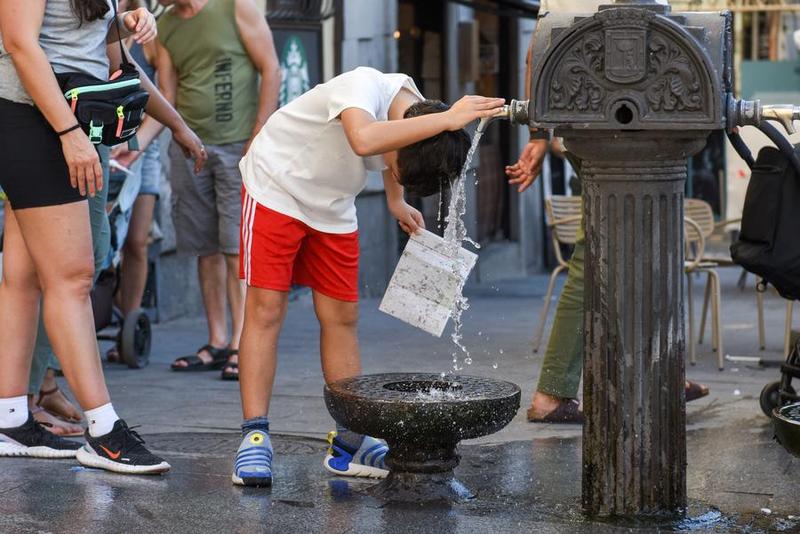
The number of migrants living in Spain without legal residency status continues to rise and has reached 840,000 people, with 91% originating from the Americas, particularly Colombia, Peru and Honduras, according to a report by the Spanish think tank Funcas (Foundation of the Savings Banks).
An estimated 17.2% of the non-EU foreign population living in Spain is in an irregular administrative situation. The estimate is based on the gap between the number of foreign residents effectively living in Spain, according to the National Statistics Institute (INE), and those who hold a residence permit, benefit from international protection, or are in the process of obtaining it.
The data, as of January 1, 2025, point to a notable and sustained increase in irregular migration since 2017, when the estimated figure stood at around 107,000 people, representing 4.2% of the non-EU population residing in Spain.
By origin, migrants from the American continent stand out, totaling around 760,000 people, or 91% of all irregular migrants. Colombians account for nearly 290,000, followed by Peruvians with almost 110,000, and Hondurans with about 90,000. Migrants from Africa (50,000), Asia (15,000) and Europe (14,000) trail far behind.
The figures predate Spain’s latest immigration regulation reform, which came into force in May 2025 and introduces measures to ease access to legal status through residency ties. According to Funcas, the reform would, in principle, tend to reduce the number of migrants in an irregular situation.
International
Historic snowstorm paralyzes Toronto after 60 centimeters of snow

Toronto, Canada’s largest city and the fourth most populous in North America, was largely paralyzed on Monday after a historic snowstorm dumped up to 60 centimeters of snow and sent temperatures plunging to -15 degrees Celsius, authorities said.
Late Sunday, as the scale of the snowfall became clear, city officials declared a climate emergency, triggering extraordinary measures including parking bans on several major streets to facilitate snow removal operations.
Toronto’s public transit authority reported that while some buses remain immobilized, subway and streetcar services are operating with relative normality, though localized disruptions may occur.
A similar situation is affecting the city’s commuter rail network, which remains operational but is experiencing significant delays on its main routes due to the severe weather conditions.
International
Venezuela frees at least 80 political prisoners, NGO says
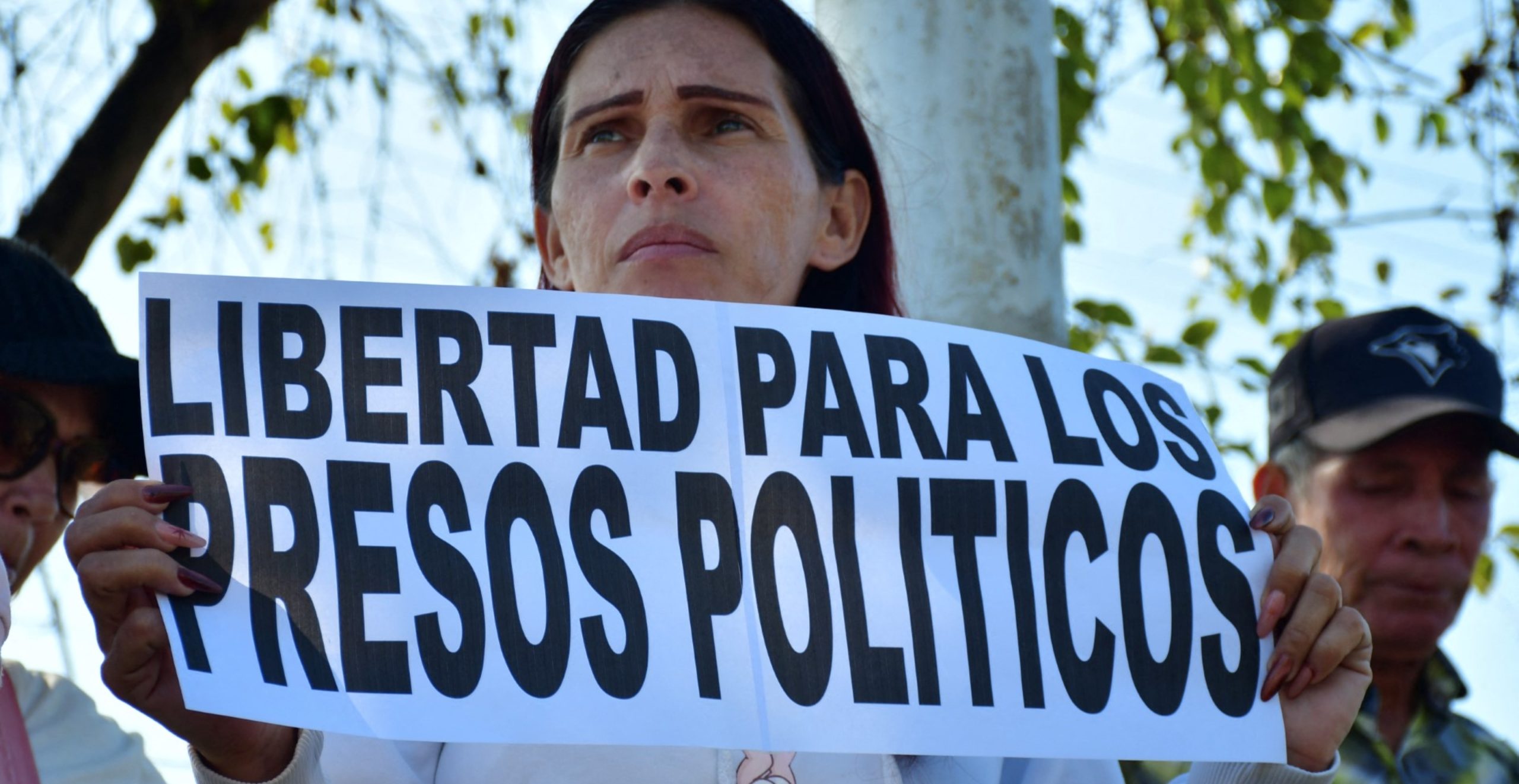
At least 80 political prisoners were released on Sunday across Venezuela, human rights group Foro Penal reported, as the broader process of detainee releases continues at a slow pace under the interim government.
Foro Penal’s director, Alfredo Romero, wrote on social media platform X that verified releases took place nationwide and that the figure could rise as more confirmations are completed.
Attorney Gonzalo Himiob, also from Foro Penal, said the excarcelations occurred during the early hours of the day and emphasized that the number is not yet final pending further verification.
The releases are part of a series of steps announced by Venezuela’s interim leader, Delcy Rodríguez, who took power after the capture of former President Nicolás Maduro in a U.S. military operation on Jan. 3, 2026. Rodríguez has pledged a significant number of liberations but has been criticized by opposition groups and rights organizations for the slow and nontransparent nature of the process.
So far, the Venezuelan government reports that 626 detainees have been freed since December, though independent counts by human rights groups suggest the number of actual political prisoner releases is lower and that many remain behind bars.
Families of those still detained have maintained vigils outside prisons, hopeful for further releases even as broader concerns about political imprisonment and due process persist.
-

 International4 days ago
International4 days agoTrump to invite Venezuela’s interim president Delcy Rodríguez to Washington
-

 Central America4 days ago
Central America4 days agoMazatenango Carnival cancelled amid State of Siege in Guatemala
-

 International4 days ago
International4 days agoMarkets rise as Trump halts Europe tariffs and floats Greenland agreement framework
-
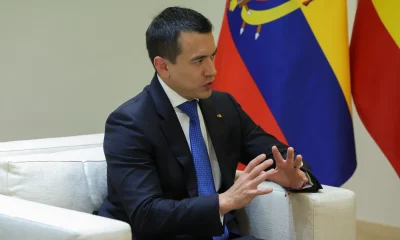
 International5 days ago
International5 days agoColombia slams Ecuador’s 30% tariff as ‘economic aggression’
-

 International4 days ago
International4 days agoVenezuela’s interim president predicts 37% increase in revenues for 2026
-

 Internacionales3 days ago
Internacionales3 days agoMajor winter storm threatens “catastrophic” ice and snow across much of the U.S.
-

 International2 days ago
International2 days agoTrump-Era Defense Plan Prioritizes Border Security and Scales Back Global Commitments
-

 International4 days ago
International4 days agoFour minors killed in deadly clash between FARC dissidents in Colombia’s Amazon
-

 International4 days ago
International4 days agoJapan reopens Kashiwazaki-Kariwa Plant despite public concerns
-

 Central America3 days ago
Central America3 days agoGuatemala’s president rules out negotiations with inmates after prison riots
-

 International3 days ago
International3 days agoGuatemala considers sending high-risk gang members to military prisons
-

 International2 days ago
International2 days agoBogotá and Quito Seek Dialogue After Tariffs and Power Cut Escalate Tensions
-
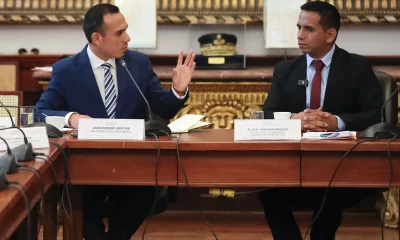
 International5 days ago
International5 days agoJosé Jerí claims destabilization attempt after videos of secretive meetings surface
-

 International1 day ago
International1 day agoDelcy Rodríguez seeks political agreements after Maduro’s ouster
-

 International3 days ago
International3 days agoRights group says over 5,000 killed in Iran protests, mostly civilians
-

 International1 day ago
International1 day agoFederal immigration agents kill man in Minneapolis, sparking protests and outrage
-

 Central America5 hours ago
Central America5 hours agoGuatemala seizes over a ton of cocaine hidden in flour at Pacific port
-

 International5 hours ago
International5 hours agoEU launches new probe into X over AI-generated fake nude images
-

 International5 hours ago
International5 hours agoVenezuela frees at least 80 political prisoners, NGO says
-

 International5 hours ago
International5 hours agoSpain’s irregular migrant population rises to 840,000, study finds
-

 International5 hours ago
International5 hours agoFrance debates ban on social media for children under 15
-

 International5 hours ago
International5 hours agoRights group says nearly 6,000 killed in Iran protest crackdown
-

 International5 hours ago
International5 hours agoHistoric snowstorm paralyzes Toronto after 60 centimeters of snow
-

 International5 hours ago
International5 hours agoSevere winter storm grips U.S., leaves multiple dead as extreme cold persists


























